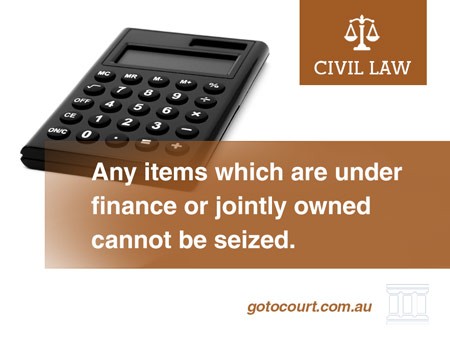Enforcing a Judgment (SA)
The law governing enforcing a judgment in South Australia is the Enforcement of Judgments Act 1991. Under the Limitations of Actions Act 1936, a judgment creditor has 15 years from the date of the judgment to enforce the debt. However, if a judgment creditor wishes to enforce a debt after 6 years, they must obtain the leave or permission of the Court to proceed. After judgment, the successful party is called the judgment creditor and the person who owes the money is the judgment debtor. Before taking action to enforce a judgment, a creditor should consider whether or not the defendant is able to pay the debt, as most types of enforcement action attract fees. If the defendant has no way of repaying the debt, it won’t be repaid, or won’t be repaid in full.

Investigation hearing and examination hearing
If the judgment debt is less than $10,000.00, the first process in the enforcement of a judgment for a debt must be an investigation hearing. If the debtor is present at court when the judgment is made, the magistrate can conduct an investigation hearing into the defendant’s financial position. Otherwise, a Request to Registrar can be filed. There is a filing fee for this form. Prior to the hearing, the debtor will fill out a form setting out their financial situation. They can be questioned on this during the hearing. The court can then make an order for payment according to what they decide the debtor can pay. If the court decides the debtor has no means to pay the debt, the matter can be adjourned (usually for one year) so that the court can look at the debtor’s circumstances again.
If two payments are missed, an examination summons can be issued. There is a filing fee for this form. The judgment debtor will have to come back to court and explain why payment was not made and the court may adjust the payment order if the creditor’s circumstances have changed. If there is no proper reason for not complying with the instalment order, then the debtor may be imprisoned for contempt of court. This does not change their obligation to pay the debt.
Warrant for Sale
If the debt is over $10,000.00, a warrant for sale can be issued in relation to either the debtor’s real property (land) or personal property (such as non-essential household items). If the creditor wants a Warrant of sale and the debt is less than $10,000.00 an application to explain why a payment arrangement is not acceptable must be made. A warrant for the sale of personal property authorises a Sheriff’s Officer to enter the debtor’s address and seize property to auction to pay the debt. There is a fee for this application. Items such as cars worth less than $2,500.00, ordinary clothing and necessary household goods cannot be seized.
If the debtor is bankrupt their property cannot be seized. Any items which are under finance or jointly owned cannot be seized. For a warrant of sale of land the creditor must give a written undertaking to pay any costs involved in the auction of the land. The costs are added to the debt and may be recovered from the debtor upon sale of the land.
Charging Order
A charging order means that the debt will be registered on the real estate of the debtor or on the assets of a company. When the property is sold then it will be subject to the charge and the creditor will have priority over the owner for the proceeds of the sale, after any mortgage or legal encumbrance. An application for a charging order needs to be served on the judgment debtor. If the court grants the order, it will need to be registered at the Lands Titles Office.
Garnishee Order
A garnishee order is an order that any money owed to the debtor (wages, bank accounts etc) is paid directly to the creditor. The debtor must consent to order for it to be made.
Chronic Debtors Order
If a debtor has other outstanding debts and has been subject to enforcement action in the last year, has no realisable assets and cannot afford to repay the debt by instalments within the next year, the court can declare the debtor to be a chronic debtor. The court will make one order to cover all the debtor’s debts and fines and each creditor will be entitled to share in any payments collected by the court.
If you require legal advice or representation in any legal matter, please contact Go To Court Lawyers.








